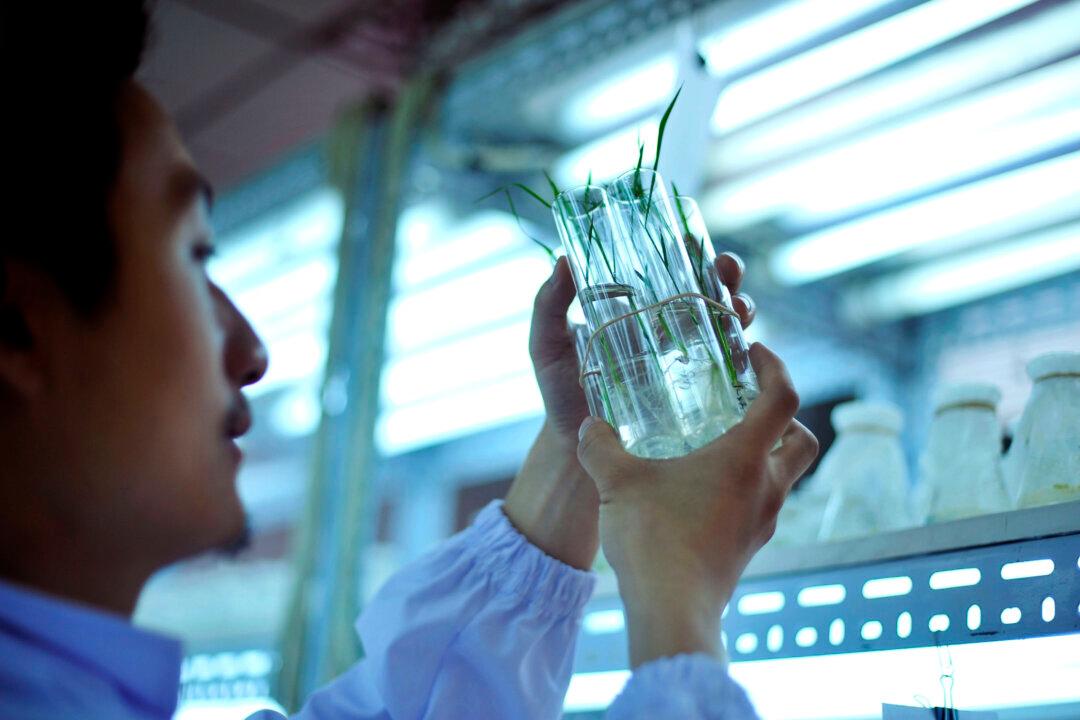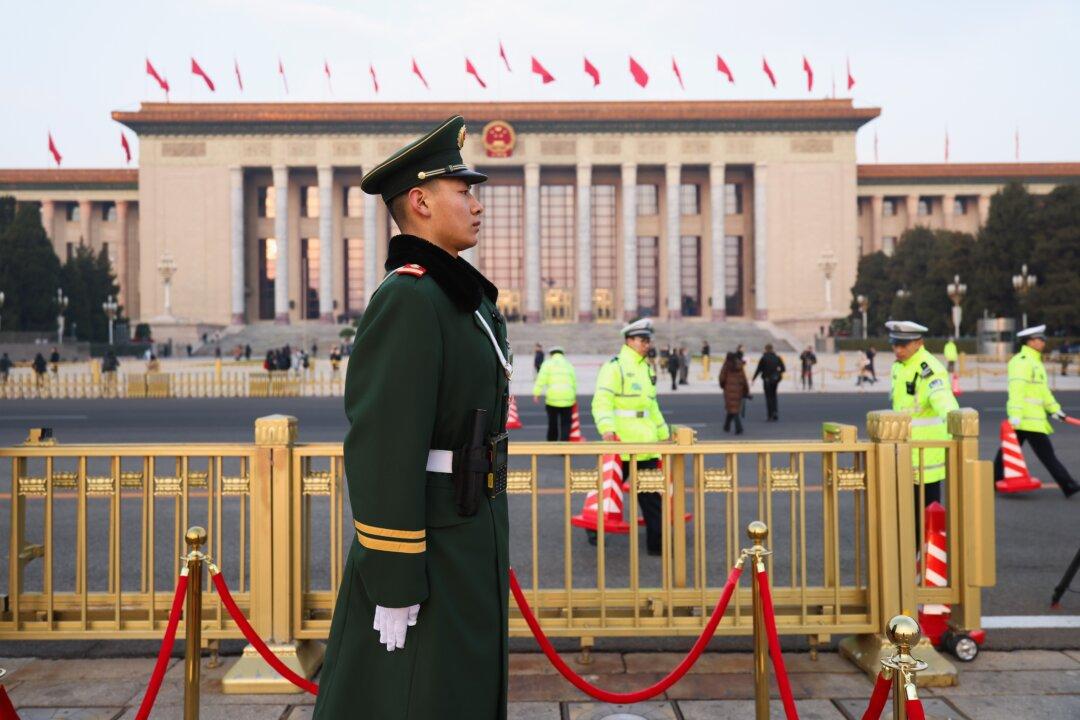On Aug. 17 safety certificates for genetically modified (GMO) varieties of corn and rice were due to be renewed by China’s Ministry of Agriculture, but the deadline came and went with no action being taken.
The failure to act was apparently not an oversight. Huang Dafang, a researcher from the Biotechnology Research Institute and a member of China’s Biosafety Committee, told state-run Xinhua news agency on Sept. 4 that the central authorities have an attitude of “active research and careful promotion” of GMOs.
Because local authorities fear public opinion against GMOs, Huang said, there was “a very slow procedure in getting approval” and the Aug. 17 deadline was missed.
The failure to act in this case amounts to a de facto approval. The curious handling of these safety certificates fits a general pattern of the Chinese regime moving toward a broad adoption of GMO food without publicly acknowledging this is happening.
Although authorities have never approved the commercial distribution of GMO rice in China, the environmental group Greenpeace reported that GMO rice was found in 4 of 15 samples bought by activists in randomly chosen supermarkets in November 2013 in Wuhan, the capital of central China’s Hubei Province.
Last year, the Chinese Communist Party mouthpiece People’s Daily reported that 27 countries in Europe have found GMO-contaminated rice among Chinese exports, including 46 shipments in 2010, and 19 shipments in the first 10 months in 2011. According to People’s Daily, although all of the shipments were returned and supposedly destroyed, they were actually sold on the domestic Chinese market.
On July 31, China News published an article headlined, “GMO Rice Grown in Hubei on a Large Scale, Growers Refuse to Eat It Themselves.”
According to the article, farmers who grow GMO rice sell all of it, refusing themselves to eat it. Instead, they grow a small amount of conventional rice for themselves and their families. As a result, GMO rice has taken over.
A rice farmer named Dong Kejiang told China News, “It is now difficult to find conventional rice seeds.”
Not Just Rice
The Economic Observer, a magazine in mainland China, reported in June 2011 that a researcher at the Chinese Academy of Agricultural Sciences said at a forum hosted by the Ministry of Agriculture that GMO crops such as corn and rice have been illegally grown in China for a long time.
GMO corn varieties were found all over the country including in the provinces of Sichuan, Hunan, Guizhou, Liaoning, and Jilin, according to the Economic Observer.
Much of the GMO food consumed in China is imported.
Professor Sun Wenguang from Shandong University Department of Economics told Epoch Times the Communist Party imports large quantities of GMO crops to alleviate food shortages, since GMO foods are relatively inexpensive. The Party intentionally conceals data such as the varieties of and lab results for GMO foods, according to Sun.
According to China-based Science Net, Li Guoxiang, a researcher with the Chinese Academy of Social Sciences (CASS), said China imports over 70 percent of its soybeans and more than 90 percent of its vegetable seeds, and most of them are genetically modified.
The extent to which the state is pushing GMO food can be seen in budgetary figures mentioned in a 2010 report.
China-based Science and Technology Daily quoted a member of the National People’s Congress who is also a director of a research institute for rice as saying that the central government had approved 30 billion yuan (US$4.9 billion) for the research and development of GMO crops, but only 180 million yuan (US$29 million) for non-GMO crops.
The state’s official data doesn’t reveal the extent of the use of GMO in China.
According to the data published by the Ministry of Agriculture in 2013, China has issued GMO Safety Certificates for eight domestically developed, genetically modified crops, including varieties of tomato, cotton, petunia, sweet pepper, chili pepper, papaya, rice, and corn.
However, according to the Plant Genetic Engineering Center in Hebei Province, a government-funded research center, the Ministry of Agriculture has in fact issued as many as 1,110 certificates since 1996.
This plunge into GMOs may have presented Chinese society with a fait accompli.
“GMO has entered so many areas of society, it’s almost impossible to ban it now,” said Li Guoxiang.
Safety
The GMO rice whose safety certificate expired on Aug. 17 is named Bt Shanyou 63. It has a protein called Bt added to it, which helps the rice resist pests.
Dr. Wang Yuedan of the Department of Medicine at Beijing University noted that Bt is a type of bacterial protein that kills insects and bugs by dissolving and “melting” their intestines.
“The Bt protein is not a natural component of rice,” Wang said. “It is a bacterial protein. There have not been sufficient laboratory tests on the safety of this variety of rice.”
“We do not yet know what possible effects eating this variety of rice will have on human physiology, especially when this bacterial protein is absorbed into the blood stream,” Wang said. “This bacterial protein, when fully integrated into the human body, may cause allergies and may weaken the immune system.”
After Wang injected his lab rats with the Bt protein four times over a four-month period, he found their immune systems became abnormal, their spleens atrophied, and their white blood cell counts changed. He said this shows the Bt protein seriously affects mammals.
Yuan Longping is an agricultural scientist and popularly known as China’s “father of hybrid rice.” He is also a critic of the Bt rice.
During the China Development Forum 2014 Yuan told Xinhua, “A number of transgenic, insect-resistant rice varieties contain a toxic protein. If insects die after ingesting it, what happens when humans eat it? We have to be especially careful.”
Fudan University life sciences professor Yang Jinshui recently told Shanghai Daily, “The bacteria genes in GMO rice cannot be completely metabolized and eliminated.” Yang is a member of the genetic research team at the Chinese Academy of Agricultural Sciences.
“Rice is the staple food of the Chinese,” Yang said. “If [GMO rice is] industrialized and commercialized on a large scale, there is no turning back in our country. So we have to be extremely careful.”

